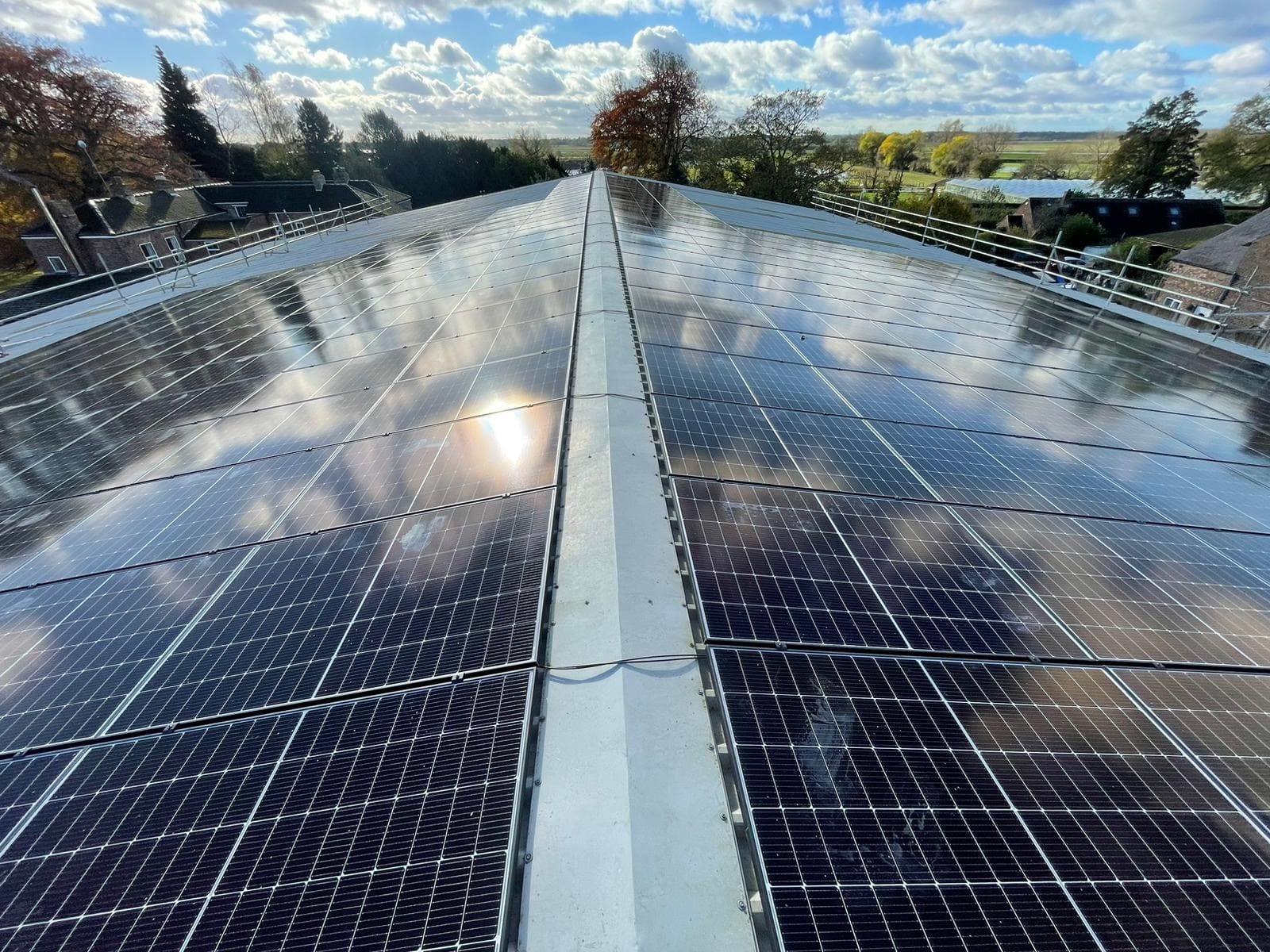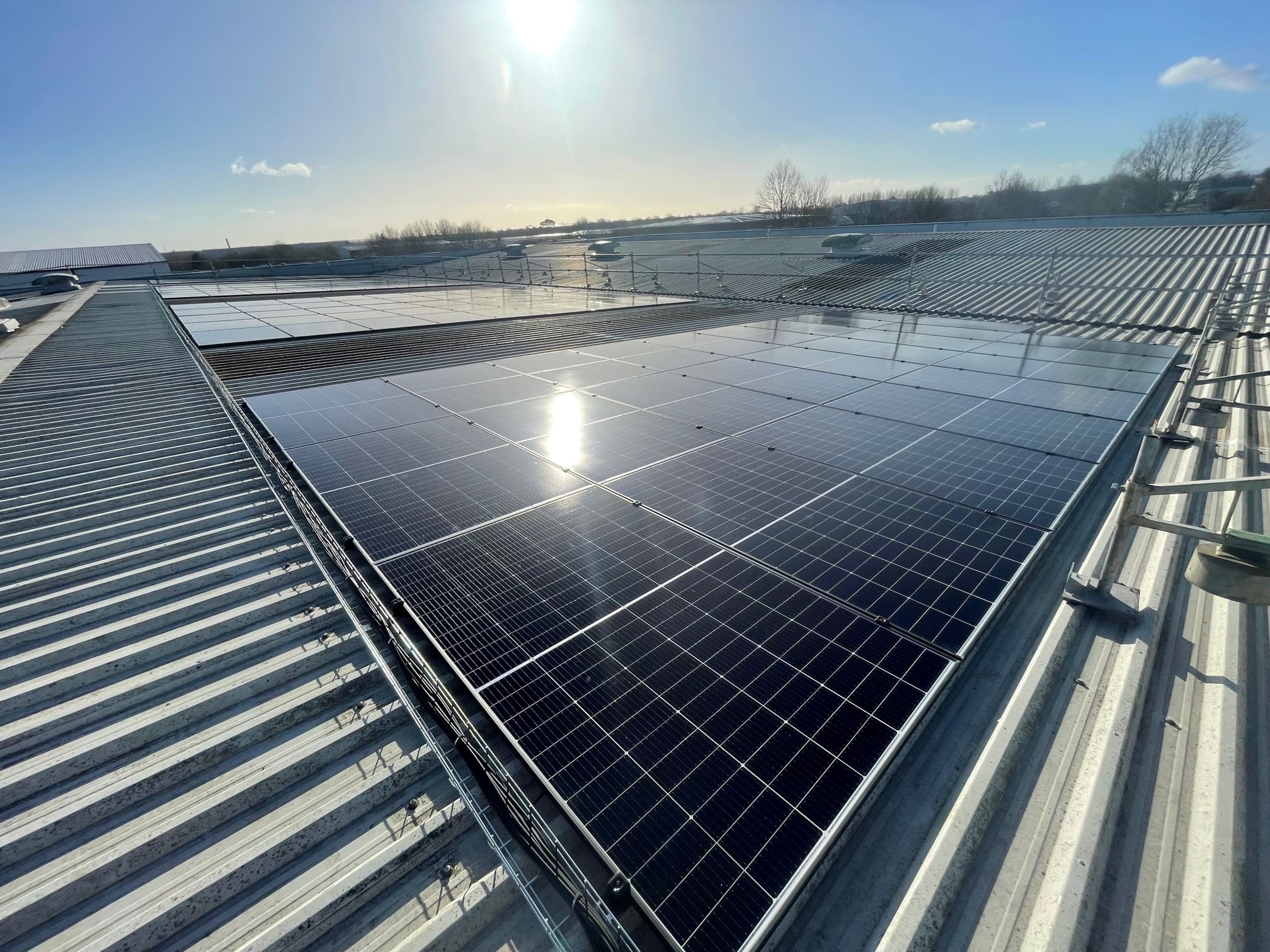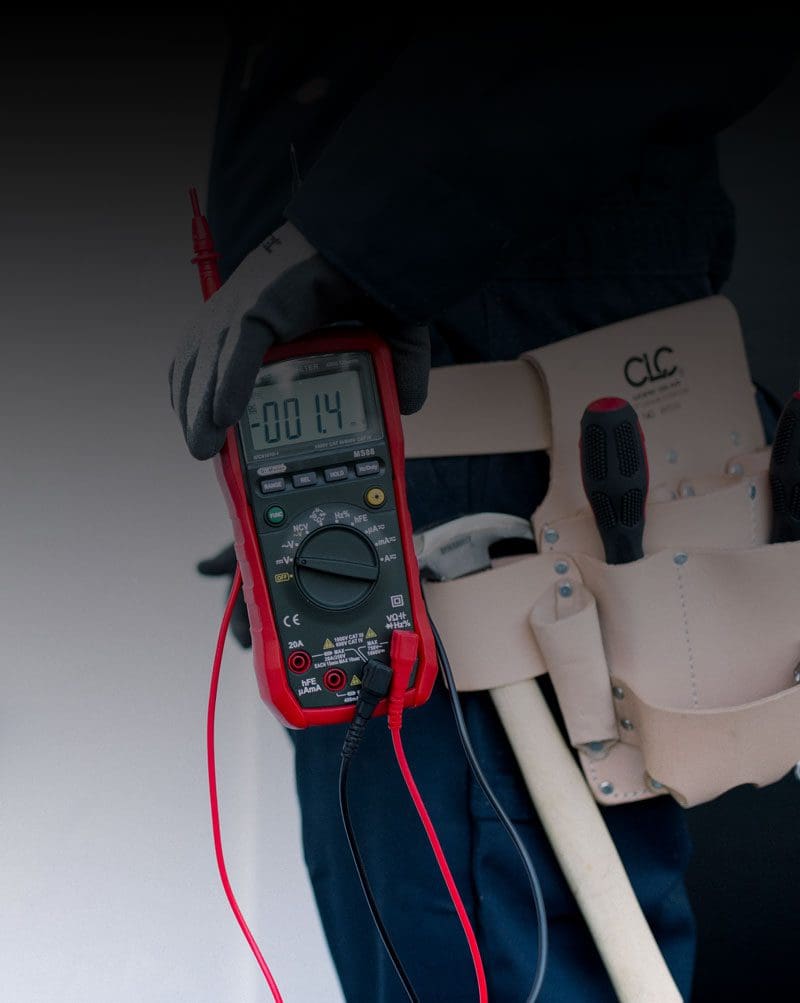Powering Up Profit:
The Practicality and ROI of Commercial Solar Battery Storage in the UK.
For UK businesses with significant roof space – think warehouses, factories, and large commercial buildings – solar panels offer an undeniable pathway to reduced energy bills and a greener footprint. But what about pairing them with battery storage? Is it a practical investment, and can it truly supercharge your return on investment (ROI)? This article explores the benefits, technical considerations, financial implications, and fate of excess energy when integrating battery storage into commercial solar systems in the UK.
Why Battery Storage for Commercial Solar?
While solar panels generate electricity during daylight hours, a business’s energy consumption often peaks in the evenings or during periods of low sunlight. Without battery storage, any unused solar energy is typically exported back to the grid for a modest return via the Smart Export Guarantee (SEG) scheme. This can lead to missed opportunities for maximising self-consumption and avoiding higher peak-time electricity charges.
Commercial battery storage, also known as a Battery Energy Storage System (BESS), addresses this by:
- Maximising Self-Consumption: Storing excess solar energy generated during the day for use when panels aren’t producing, or during periods of higher demand and higher grid prices. This significantly reduces reliance on costly grid electricity.
- Peak Shaving: Discharging stored energy during peak demand periods to avoid expensive “demand charges” from the grid. This is particularly valuable for businesses with variable energy needs.
- Load Shifting: Charging batteries when electricity prices are low (e.g., overnight on a smart tariff) and discharging when prices are high, effectively engaging in “energy arbitrage” to generate savings or even revenue.
- Enhanced Energy Resilience: Providing a backup power supply in the event of grid outages, ensuring continuous operations for critical equipment, servers, and security systems.
- Improved Sustainability: Maximising the use of clean, on-site generated electricity, further reducing your business’s carbon footprint and enhancing its green credentials.
Sizing Up Your Storage: How Many Batteries for Commercial Systems?
Unlike domestic installations, sizing battery storage for a commercial building like a warehouse or factory is far more complex and requires a bespoke assessment. There isn’t a simple “number of batteries per panel” rule, as it depends heavily on:
- Your Business’s Energy Consumption Profile: This is the most critical factor. A detailed energy audit will map out your daily, weekly, and even seasonal electricity usage patterns, including peak demands and off-peak consumption.
- Solar Panel System Capacity (kWp): The larger your solar array, the more excess energy it can potentially generate, thus requiring greater storage capacity to capture it all.
- Desired Level of Self-Sufficiency/Backup: Do you want to maximise self-consumption, or is critical backup power a priority? This will influence the battery’s usable capacity and power output.
- Operating Hours: Businesses that operate predominantly during daylight hours might have less immediate need for extensive battery storage compared to those with significant evening or night-time operations.
- Tariff Structure: Understanding your electricity tariff, including time-of-use rates and demand charges, is crucial for optimising battery use for maximum savings.
General Guidance (Not a Definitive Rule):
While specific recommendations require professional analysis, commercial battery systems are modular and scalable. They can range from smaller units for SMEs (e.g., Tesla Powerwall, suitable for some smaller commercial applications with up to 13.5 kWh of storage) to large-scale industrial solutions (e.g., Tesvolt TS HV series, or custom containerised solutions offering MW-scale storage). A 2MW battery, for instance, can occupy the footprint of a shipping container.
Key considerations for sizing:
- Usable Capacity (kWh): This refers to the amount of energy the battery can actually store and discharge without damaging its lifespan (typically around 90% of total capacity for lithium-ion). It needs to cover your typical electricity usage between sunset and sunrise, plus any expected excess generation.
- Power Output (kW): This dictates how quickly the battery can deliver stored electricity. High-demand machinery in factories will require a battery with a higher peak power output.
- Scalability: Many commercial battery systems are designed to be expanded in the future, allowing businesses to adapt their storage as their energy needs evolve.
A qualified solar and battery storage installer will conduct a comprehensive energy audit and financial modelling to determine the optimal battery size and configuration for your specific business needs.
Payback Periods and Return on Investment (ROI)
The financial viability of commercial battery storage in the UK is increasingly attractive, driven by volatile energy prices and falling battery costs. While the payback period for standalone commercial solar PV systems can be as short as 2-6 years, adding battery storage typically extends this.
Typical Payback Periods & ROI for Commercial Solar with Battery Storage (UK):
- ROI: 10% – 18% per year
- Payback Period: 6 – 10 years (though some highly optimised systems may achieve quicker paybacks)
Factors influencing ROI and Payback:
- Initial Investment Cost: This includes the cost of batteries, inverters, installation, and any necessary electrical upgrades. The 0% VAT on energy-saving materials (as of April 2022) can reduce upfront costs.
- Electricity Price Fluctuations: Higher grid electricity prices, especially during peak hours, significantly improve the financial case for battery storage as the savings from self-consumption and peak shaving become more substantial.
- Self-Consumption Optimisation: The more solar energy you can use directly from your panels or battery, the greater your savings. Exporting to the grid via SEG tariffs (typically 5p-15p/kWh) offers far lower returns than using your own generated power (which saves you the import cost of 25p+/kWh).
- Smart Tariffs: Businesses on time-of-use or dynamic tariffs can leverage batteries to charge when rates are lowest (e.g., overnight) and discharge when rates are highest, creating significant arbitrage opportunities.
- Operating Profile: Businesses with high energy consumption outside of solar generation hours (e.g., evening shifts in a factory) will see a stronger ROI from battery storage.
- Government Incentives & Tax Allowances: Businesses can often claim 100% first-year tax allowance on qualifying energy-saving assets, further improving the financial attractiveness.
Detailed financial modelling, considering your specific energy consumption, tariff structure, and system design, is essential for an accurate ROI and payback projection.
What Happens When Batteries are Full?
Once your commercial battery storage system is fully charged, any further excess electricity generated by your solar panels is typically handled in one of two ways:
- Export to the Grid via Smart Export Guarantee (SEG): This is the most common scenario. The surplus electricity is automatically fed back into the National Grid, and your business receives payments from your energy supplier under the SEG scheme. While the export rates are lower than import rates, it still provides a revenue stream for otherwise unused energy.
- Diversion to Other Uses: In some advanced systems, excess energy, once batteries are full, can be automatically diverted to power other on-site loads that might not typically run on solar, such as:
- Immersion heaters: To heat water.
- EV charging stations: To charge electric vehicles on-site.
- Non-critical loads: To power appliances or systems that aren’t essential but can consume excess energy efficiently.
Modern battery management systems (BMS) are sophisticated, constantly monitoring generation, consumption, battery charge, and grid conditions to optimise energy flow and maximise the economic benefits for your business.
Is It Worth the Investment?
For many UK businesses, particularly those with large rooftops and significant energy consumption, investing in commercial solar panel systems with integrated battery storage is becoming increasingly practical and financially compelling. While the initial outlay is higher than solar PV alone, the ability to:
- Maximise self-consumption of free solar energy.
- Reduce expensive peak-time grid imports.
- Generate revenue from excess exports.
- Future-proof against rising and volatile energy prices.
- Enhance energy resilience and sustainability.
…makes a strong case for its long-term value. With ongoing advancements in battery technology, falling prices, and increasing clarity around financial benefits, commercial battery storage is no longer just a “nice-to-have” but a strategic investment for businesses looking to take control of their energy future. Consulting with experienced commercial solar and battery storage providers is the crucial first step to understanding the tailored benefits for your specific operation.
Our Services
Commercial Solar Panels
We have designed and installed high yield commercial solar panel systems for many clients. We can provide all design and payback calculations and ongoing maintenance.
Agricultural Solar Panels
We have many years experience designing and installing agricultural solar panel systems for farm businesses and saving them huge costs on electrical energy.
Residential Solar Panels
Our design and solar panel installation engineers have over a decade of experience installing and maintaining solar PV systems for residential customers across the UK
Electrical Contractors
We are NICEIC registered electrical contractors and members of the Electrical Contractors Association for all industrial, commercial and residential electrical services including testing, inspection and compliance services.
Mechanical Services
We offer M&E design, calculation, estimation and full fit-out, installation and maintenance services to commercial clients. We also provide contract maintenance and building compliance and testing services
Solar Renewables
We are MCS and RECC registered solar panel installers for all commercial and residential solar panel installations including ground arrays and roof mounted PV systems and battery storage configurations.
EV Home Chargers
We fit all makes, models and types of EV Chargers for residential customers. We are Office for Zero Emission Vehicles (OZEV) authorised installers.
EV Workplace Chargers
We can undertake all required aspects of commercial EV charging point installation, from initial design and consultation to servicing and on-going maintenance.
Gas Boiler Engineers
We are Gas Safe Registered and undertake boiler installation, servicing and all gas safety checks for landlords and residential customers.
Solar Panel Installer
Photovoltaic Systems generate no greenhouse gases, a typical domestic system can save approximately 1.2 tonnes of carbon dioxide emissions per year – adding up to almost 30 tonnes over a system’s lifetime.
Our design and solar panel installation engineers have many years experience installing solar PV systems for industrial and commercial clients.
Contact Us
Solar Panel Enquiry
Address
Keighley, West Yorkshire
BD21 4PF
UK
What3Words
What3Words:///clocks.decide.pokers
Phone
Keighley: 01535 687010 Skipton: 01756 793039




